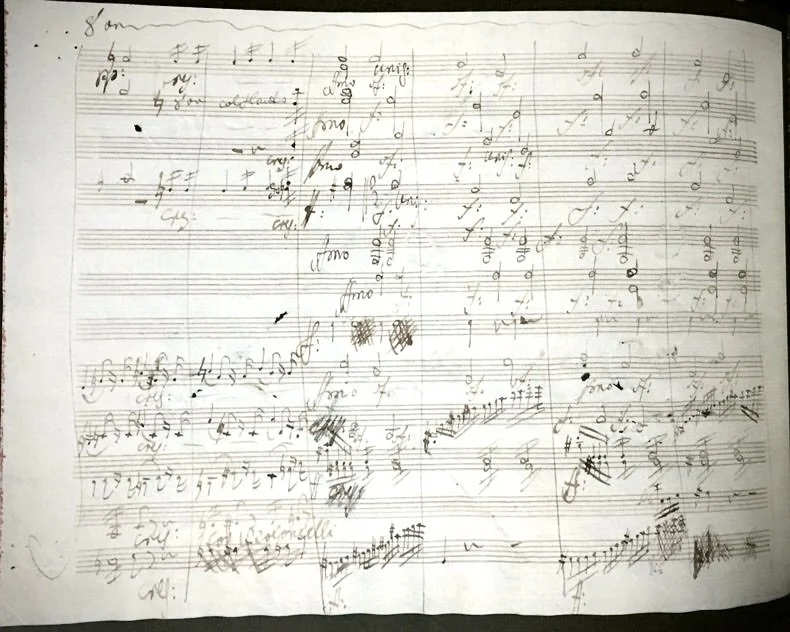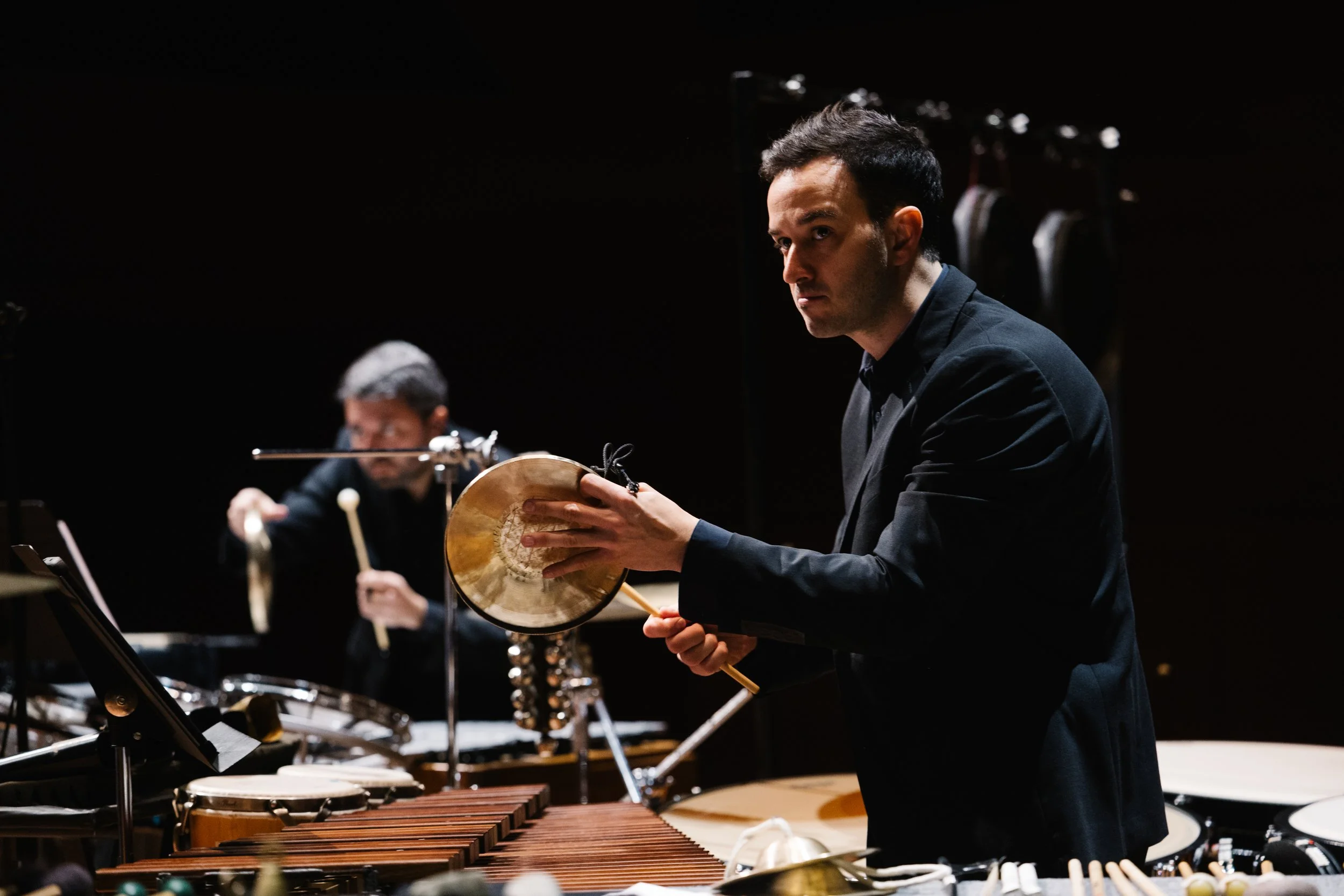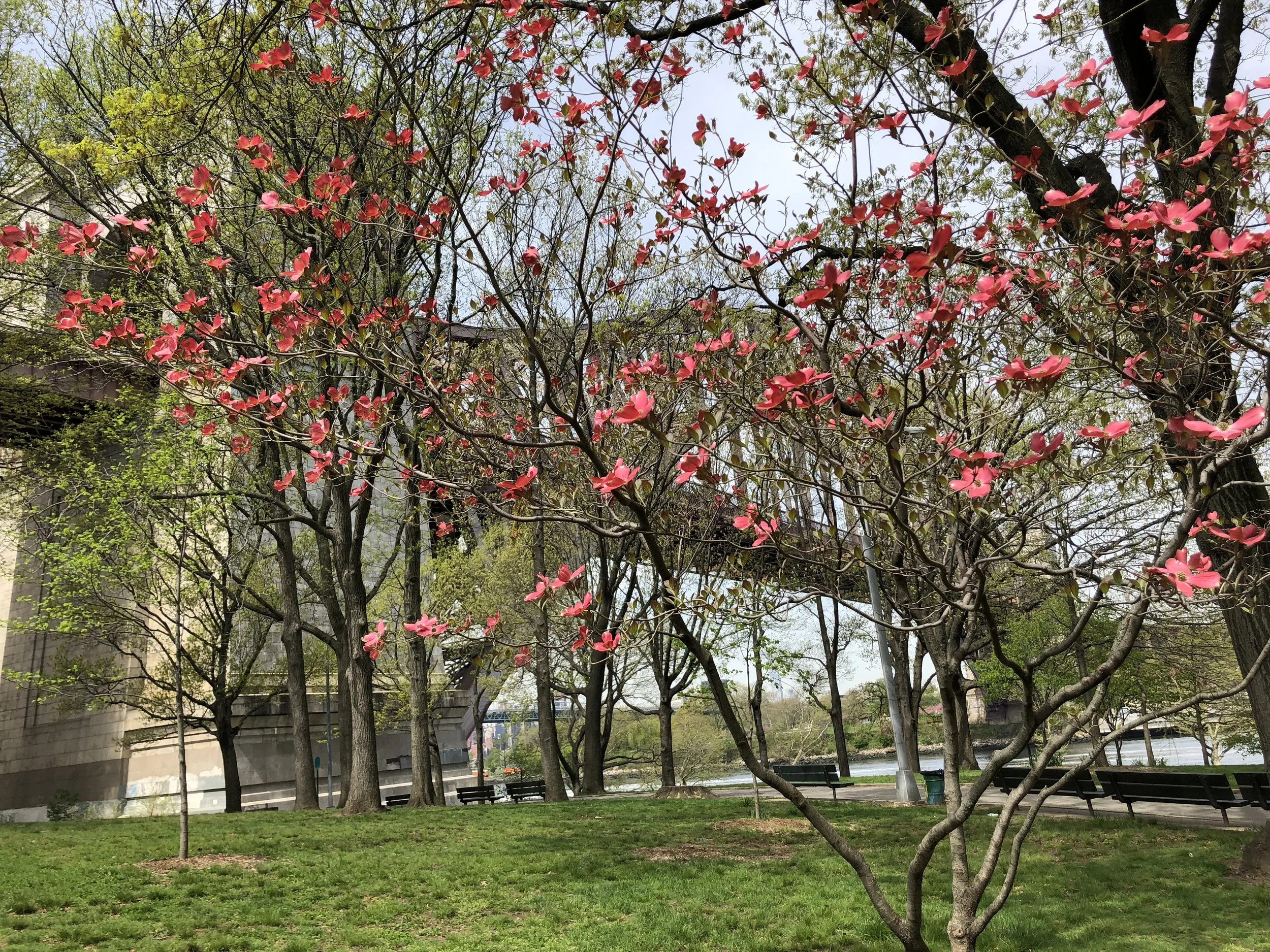Silent Light, the new, immersive opera by composer Paola Prestini and librettist Royce Vavrek, based upon the 2007 Dutch film Stellet Licht, transports us to a Northern Mexican Mennonite community in this captivating parable of love, duty, temptation, and the role of women in society.
REVIEW: Parlando's Powerful Music of Night
The nocturne and the enduring theme of night music was explored in the latest Merkin Hall performance by Parlando. Conductor Ian Niederhoffer, who founded this intrepid and promising chamber orchestra in 2019, conceived and led a packed house through an insightful and captivating rumination on the musical night-scape.
REVIEW: New York Philharmonic Makes It About the Music
Eyes and ears are focused on the New York Philharmonic this week. A new collective bargaining agreement with the American Federation of Musicians has been reached, promising significant pay increases and important cultural changes. Future music director Gustavo Dudamel doesn’t take the helm until 2026, and role of CEO is currently in limbo.
REVIEW: American Classical Orchestra Celebrates 40 Years
The American Classical Orchestra opened their 40th season on a joyful note. Under the baton of Artistic Director Thomas Crawford, Wednesday’s concert at Alice Tully Hall celebrated the audience as much as the venerable period-instrument ensemble itself. Serving up one of classical music’s great crowd-pleasers, Ludwig van Beethoven’s Seventh Symphony, Crawford combined a light, breezy touch with heartfelt investment in the music of the eighteenth and nineteenth centuries.
REVIEW: Imagining a World Without Humans
mɔɹnɪŋ [morning//mourning] was presented here in an hour-long version ... The piece takes as its premise that humans have all suddenly disappeared, and explores what might happen to the planet afterwards, taking its cue from Alan Weisman's 2007 book "The World Without Us." It's billed as an opera, but at least in this incarnation is more of a semi-staged oratorio; while the five excellent performers (Gelsey Bell, Aviva Jaye, Brian McCorkle, Mia Pak, and Paul Pinto) have character names listed in the program, they are never used, nor do they interact as ongoing characters.
PREVIEW: September in NYC's Classical Music Highlights
CadenzaNYC's Preview of NYC's Classical Music Highlights September 2024. Listings include Lincoln Center, New York Philharmonic, Carnegie Hall, Met Opera, and other leading venues in Manhattan, Brooklyn, and more.
REVIEW: The Sylvan Winds Among Friends
The Sylvan Winds concluded their forty-fifth season as one of New York’s premiere woodwind quintets with a convivial, festive concert at Merkin Concert Hall. Joined by a mixture of friends and former ensemble members, the evening featured fresh new works, as well as beloved classics, and expanded into veritable wind ensemble works with thirteen players. A “baker’s duodecet?”
REVIEW: Evgeny Kissin Connects and Communicates at Carnegie Hall
The salon-like ambiance was ideal for Beethoven at his most Schubertian: Piano Sonata No. 27 in E Minor, Op. 90, a two-movement piece from the composer’s “late-middle” (or some could argue, “early-late”) period. Far from the bombast of the Appasionata, the first movement of Op. 90, “Lively, with feeling and expression throughout,” finds the composer turning inward, examining — through an expansive sense of melody that points the way not only for Schubert, but Romantic composers in general — the dichotomies of existence, the positive and negative implications of each musical germ. And by the second movement, a lilting rondo “To be played no too fast and very songfully,” it was clear that melody — not only Kissin’s plush, versatile voicing in the keys, but his free flowing eloquence in sculpting and shaping phrases — was the star of this show.
REVIEW: "An American Soldier" Documents an American Tragedy
AIt was a difficult opera to watch. As Danny Chen, Brian Vu’s powerful lyric tenor is as steely as it is plush, and he delivered a brave, stoic performance that haunted the courtroom proceedings, shared lighter scenes with hints of romance with the earnest and clear mezzo-soprano Hannah Cho, and endured unconscionable, racially-motivated violence.
REVIEW: The Knights Meld Musical Styles at Zankel Hall
This was the third and final concert of The Knights’ residency at Zankel Hall this year, and Heirloom, of which the orchestra was a co-commissioner, was receiving its pandemic-delayed New York premiere. Heirlooms is a three-movement work on themes of intergenerational inheritance, with one movement based on the entangling of Gabriel Kahane’s parents’ musical lives and his own, one on his grandmother’s post-war feelings about German music, and the third on the unknowable question of what his children will inherit from him.
REVIEW: Orbiting the Jupiter Symphony
Mozart’s Symphony No. 41 in C Major, K. 551 is a force of nature, a masterpiece that seems an integral fabric of our musical galaxy, (if you were born after 1788). Like the weather and the sky, it continues to surprise and awe. Known better by its moniker Jupiter, the piece formed the nucleus of the final concert of American Classical Orchestra’s 39th season. Winkingly united under the theme Astronomical, Thomas Crawford led his venerable period instrument orchestra in an evening of selections that brought telescopic perspective to the orbital trajectories, the half-lives, of musical compositions.
REVIEW: Songs and Snow, and a Battery of Percussion
Powerful stories of humanity enduring oppression and turmoil took the form of epic soundscapes in Chamber Music Society of Lincoln Center’s Songs and Snow, a luxurious performance of two works by composers who march to the beat of their own drums, while sharing an Ives-ian, pan-musical palette: recently departed George Crumb and Chinese-born Tan Dun.
PREVIEW: May's Classical Music Highlights in NYC
CadenzaNYC’s curated highlights of NYC’s classical music events for May 2024
REVIEW: Hanzhi Wang's Revelatory Virtuosity Gains the Accordion New Fans
In the United States, if we think of the accordion at all, we are likely to have images of polka bands, French ballads, or Lawrence Welk. Perhaps we remember the Far Side cartoon whose top caption reads “Welcome to heaven, here’s your harp,” followed by “Welcome to hell, here’s your accordion.”
REVIEW: Tiergarten Transports
“Yessssss…you may applaud,” winked Kim David Smith, following his breathless opening set as Master of Ceremonies of Tiergarten, the monumental, immersive cabaret experience being staged in The Great Hall under the Church of St. Mary on the Lower East Side. One of the strongest entries in Carnegie Hall’s season-long festival examining the Weimar Republic, Tiergarten is a spectacular convergence of art and entertainment.
REVIEW: William Grant Still and the Harlem Renaissance
The Orchestra Now visited the Metropolitan Museum of Art on Sunday for an exploration of Sight & Sound: William Grant Still & and the Harlem Renaissance. Tying in with the Met Museum’s current exhibition, The Harlem Renaissance and Transatlantic Modernism, Leon Botstein and Bard University’s graduate orchestra, which draws talented student musicians from around the world, delivered an invigorating performance of the seldom heard second symphony of this little understood composer.
REVIEW: Uchida and Biss Captivate in Schubert Duets
…a program entirely of Schubert, no matter the genre, skirts a slippery slope to slumber. But, even the drowsiest listener would have been captivated by the refinement of artistry on display when Mitsuko Uchida and Jonathan Biss — co-artistic directors of the Marlboro Music Festival, and both distinguished interpreters of this literature.
REVIEW: The Soldier's Tale, with John Rubinstein, at CMS
One of the more interesting and varied concerts of the season, Chamber Music Society of Lincoln Center filled Sunday afternoon with a program of “musical tales” spanning two centuries of music and multiple disciplines, too. Tamara Mumford, assured and elegant, with the Cadillac of instruments, brought impeccable French diction, operatic poise, and accurate rhythm to Ravel’s art song settings of de Parny’s erotic and anti-colonial/anti-slavery poetry.
REVIEW: Canellakis and Ott Dazzle at New York Philharmonic
Karina Canellakis, in her New York Philharmonic debut, conducted a heady, challenging program this past week at David Geffen Hall. If there was a unifying theme in the four works, it might have been a Rashamon-like exploration of the various paths Western music took from the beginning of the Fin de Siècle to the Roaring Twenties.
REVIEW: Orion Quartet Takes a Bow
The Orion String Quartet made their exit, retiring from the concert stage after 36 years as a distinguished ensemble. Associated with Chamber Music Society of Lincoln Center for more than 30 years, their makeup unchanged for as long, and their warmly received final performance was a coveted ticket on CMS’s calendar.



















